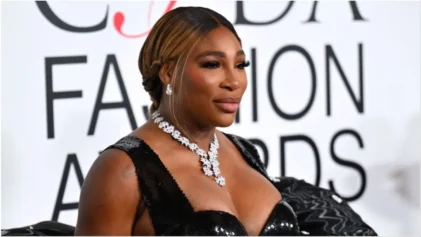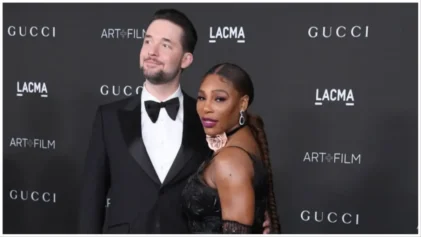https://www.youtube.com/watch?v=-KldqFluzRg&feature=youtu.be&t=4m
During an exclusive interview, Serena Williams dished on her career and how she managed to navigate being Black in the majority-white tennis world. On the Sunday, Dec. 18 telecast of The Undefeated In-Depth: Serena with Common, Williams told Common that despite the harassment and obstacles, she loves being a Black woman.
It is common knowledge that the world champion tennis player had humble beginnings. However, some of the toughest moments occurred early in her career when she had to train at white tennis courts not in her native Compton, California.
“I was in the unique situation. From the first day I stepped on the scene, I’m talking when I’m really young, we would go to parks where I’m from,” Williams says. “We would train in Compton. Then we would go to these parks and there is usually just white people that play tennis.”
But it was more than just being the only Black people on the courts. She recalled a time when a group of white children teased her and called her “Blackie” because of her race. “These kids came behind where we were practicing,” Williams says. “And, I don’t know, I was probably, like, 7 … and they were calling me Blackie, me and Venus. But you know, I didn’t really care.”
That incident did not shake her resolve because her parents instilled a strong sense of self-pride and love of one’s self.
“A lot of Black people, unfortunately, especially growing up, they are discouraged or [told], ‘You don’t look good’ or ‘Your hair is not pretty’ or ‘Your skin’s too dark’ or ‘Your lips are too big.’ Not anymore, but you know, back in the day,” she recalls. “We were always told to love ourselves.”
Her father, Richard Williams, was her coach on the court as well as a motivator who always told Williams and her sister to know their history.
“Something that my dad always did with us was he always said you have to know your history. And, if you know your past, you can have a great future,” Williams says. “There’s no other race, to me, that has such a tough history for hundreds and hundreds of years. Only the strong survive. So, we’re the strongest and the most mentally tough. And I’m really proud to wear this color every single day of my life.”


